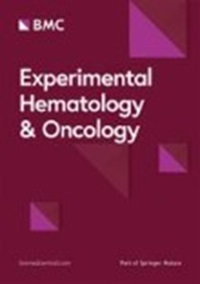Pan-cancer transcriptional atlas of minimal residual disease links DUSP1 to chemotherapy persistence
IF 9.4
1区 医学
Q1 HEMATOLOGY
引用次数: 0
Abstract
Chemotherapy is a commonly effective treatment for most types of cancer. However, many patients experience a relapse due to minimal residual disease (MRD) after chemotherapy. Previous studies have analyzed the changes induced by chemotherapy for specific types of cancer, but our study is the first to comprehensively analyze MRD across various types of cancer. We included both bulk and single-cell RNA sequencing datasets. We compared the expression of the entire genome and calculated scores for canonical pathway signatures and immune infiltrates before and after chemotherapy across different types of cancer. Our findings revealed that DUSP1 was the most significantly and widely enriched gene in pan-cancer MRD. DUSP1 was found to be essential for MRD formation and played a role in T cell-fibroblast communications and the cytotoxic function of CD4 + T cells. Overall, our analysis provides a comprehensive understanding of the changes caused by chemotherapy and identifies potential targets for preventing and eliminating MRD, which could lead to long-term survival benefits for patients.最小残留病的泛癌症转录图谱将 DUSP1 与化疗持久性联系起来
化疗是治疗大多数类型癌症的常用有效方法。然而,许多患者在化疗后会因极小残留病(MRD)而复发。以前的研究分析了特定类型癌症化疗引起的变化,但我们的研究是首次全面分析各种类型癌症的MRD。我们纳入了大量和单细胞 RNA 测序数据集。我们比较了全基因组的表达,并计算了不同类型癌症化疗前后卡农通路特征和免疫浸润的得分。我们的研究结果表明,DUSP1是泛癌症MRD中最显著、最广泛富集的基因。研究发现,DUSP1对MRD的形成至关重要,并在T细胞与成纤维细胞的沟通以及CD4 + T细胞的细胞毒性功能中发挥作用。总之,我们的分析提供了对化疗引起的变化的全面了解,并确定了预防和消除MRD的潜在靶点,这将为患者带来长期生存益处。
本文章由计算机程序翻译,如有差异,请以英文原文为准。
求助全文
约1分钟内获得全文
求助全文
来源期刊

Experimental Hematology & Oncology
Medicine-Oncology
CiteScore
12.60
自引率
7.30%
发文量
97
审稿时长
6 weeks
期刊介绍:
Experimental Hematology & Oncology is an open access journal that encompasses all aspects of hematology and oncology with an emphasis on preclinical, basic, patient-oriented and translational research. The journal acts as an international platform for sharing laboratory findings in these areas and makes a deliberate effort to publish clinical trials with 'negative' results and basic science studies with provocative findings.
Experimental Hematology & Oncology publishes original work, hypothesis, commentaries and timely reviews. With open access and rapid turnaround time from submission to publication, the journal strives to be a hub for disseminating new knowledge and discussing controversial topics for both basic scientists and busy clinicians in the closely related fields of hematology and oncology.
 求助内容:
求助内容: 应助结果提醒方式:
应助结果提醒方式:


